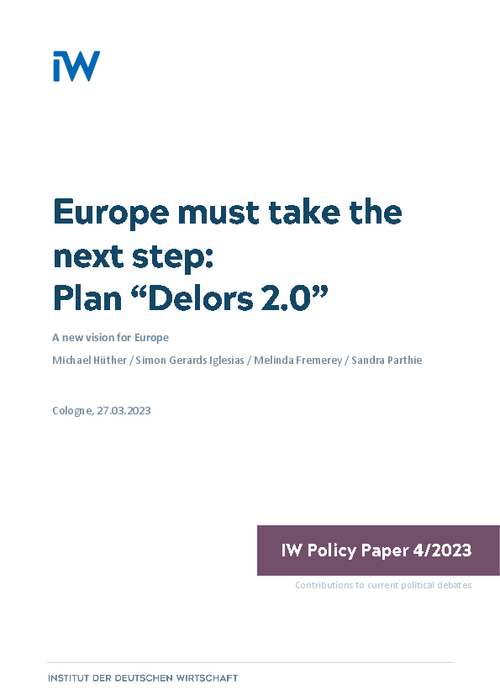In the coming years, the world order of exchange and multilateralism, which has so far been shaped by the West, will lose power, and global institutions will find it increasingly difficult to fulfil their mission of balancing interests and promoting international cooperation and development.

Europe must take the next step: Plan Delors 2.0

In the coming years, the world order of exchange and multilateralism, which has so far been shaped by the West, will lose power, and global institutions will find it increasingly difficult to fulfil their mission of balancing interests and promoting international cooperation and development.
What does this mean for the future of the European Union? The EU is entering a new phase in which the rules of the internal market have to be adapted to respond to the new challenges of environmental sustainability and open strategic autonomy. In a geopolitically turbulent environment and systemic competition with the United States for economic resources and competitiveness on the one hand, and systemic conflict with China for political influence and security on the other, the EU must seek to strengthen its sovereignty through a more active trade and economic policy. It must find a common response to maintain and strengthen its competitiveness and anchor this in its policies and instruments.
The EU is currently at a critical juncture, at which it must be discussed and clarified whether the EU will remain institutionally in its current state or whether it will deepen its integration by breaking new ground in the fundamental areas of defence, financing, and investment architecture. In each case, different logics and issues of integration arise. This must be systematically examined and developed in the light of the historical experience and expectations of European integration. All this is happening in a situation where the EU is facing huge investment challenges due to structural change. The dual transformation to a decarbonised and digitalised economy can only be achieved if massive public and private investments are mobilised and the scaling potential in the European market is raised. At the same time, demographic change and the shortage of skilled workers are systemic risks for growth in all European economies. And on top of that, there is a tense geopolitical security situation, which in turn demands a European strong response.
Always demanding "more Europe" as a response to crises is not enough to achieve real change that, as in the spirit of the Delors Plan of 1989, realises a new vision of Europe. Before investments can show their full impact at the European level and further political integration can be considered, requirements must be met in order to make Europe more attractive as a location for investment and to stimulate private and public investments.

Europe must take the next step: Plan Delors 2.0

More on the topic
Not so Different?: Dependency of the German and Italian Industry on China Intermediate Inputs
On average the German and Italian industry display a very similar intermediate input dependence on China, whether accounting for domestic inputs or not.
IW
China’s Trade Surplus – Implications for the World and for Europe
China’s merchandise trade surplus has reached an all-time high and is likely to rise further. A key driver appears to be a policy push to further bolster Chinese domestic manufacturing production, implying the danger of significant overcapacities.
IW